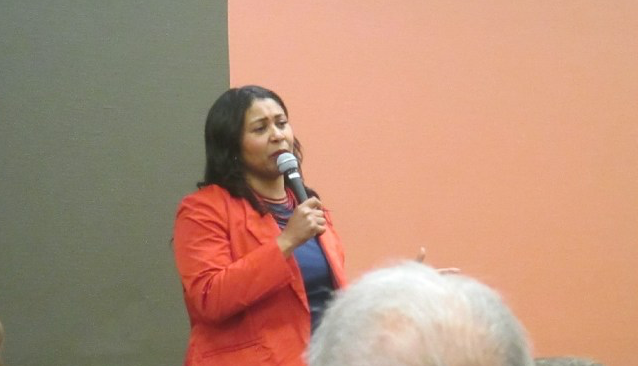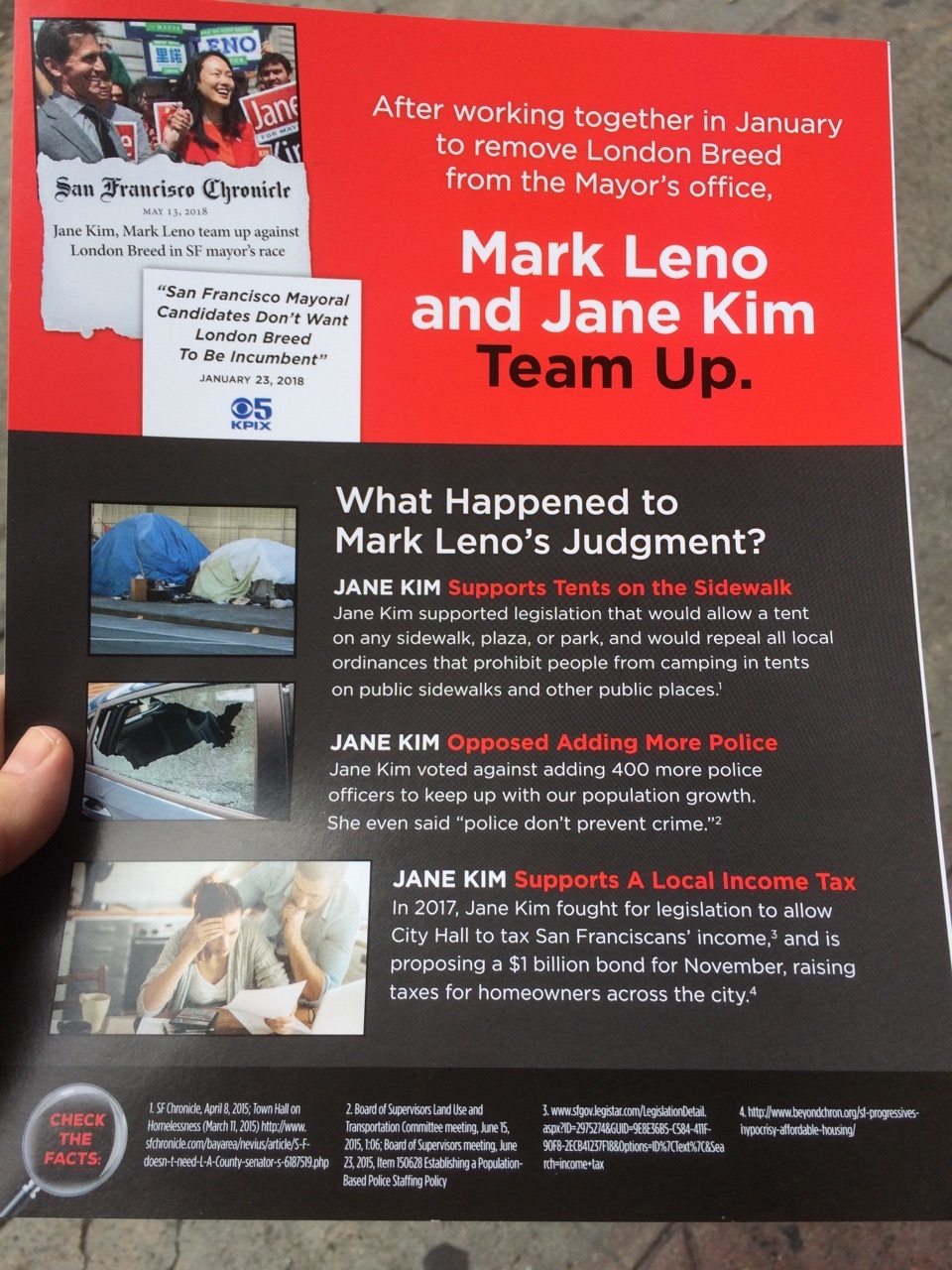
One of the authors of the city’s campaign-finance law says that the Ethics Commission is “improperly interpreting” the rules on spending caps in a way that allows “a loophole that is ripe for exploitation by candidates. Clearly that was not the intention of our original law or its subsequent amendments.”
Steve Hill, who was the co-author of the city’s public-finance law for mayoral races, was responding to our report that the Ethics Commission has allowed Sup. London Breed to raise and spend money beyond the allowable cap– because her supporters are spending so much money attacking Mark Leno.

In a letter to Ethics Commission Executive Director Lee Ann Pelham, Hill noted that the law, thanks to a series of amendments, has become complex and “somewhat unwieldy.” The inaccurate interpretation, he said, is not the Ethics Commission’s fault.
Nevertheless, Hill notes, here’s the problem:
Here is the current version of the law that the Ethics Commission is charged with interpreting. The culprit appears to be three words causing confusion. Those three words are below in bold:
(a) The Executive Director shall adjust the Individual Expenditure Ceiling of a candidate for Mayor to an amount equal to the sum of the Total Opposition Spending against that candidate and the highest level of the Total Supportive Funds of any other candidate for Mayor if such amount is greater than $1,475,000, provided that the Executive Director may adjust a candidate’s Individual Expenditure Ceilings only in increments of $100,000.
I would ask you to read that again and delete the word “other” from your reading, so that it reads just “any candidate” rather than “any other candidate.” That word “other” is causing a lot of havoc. A correct reading of this passage, which complies with the spirit and the letter of the law that we drafted and passed back in 2000 as Proposition O, means that the new Individual Expenditure Ceiling would be that of whichever candidate has the highest sum for Total Supportive Funds and Total Opposition Spending (let’s call that the TSF + TOS level). But a different reading of this passage with the words “any other candidate” apparently has led the Ethics Commission to administer this law so that it means any other candidate EXCEPT the candidate that they are adjusting the Individual Expenditure Ceiling for.
So in the current mayoral election, that means when configuring the Individual Expenditure Ceiling for candidates Mark Leno or Jane Kim, the “any other candidate” that has the highest level of TSF + TOS would be candidate London Breed. But for candidate London Breed, when the Ethics Commission figures out her campaign’s Individual Expenditure Ceiling, the “any other candidate” that has the highest level of TSF + TOS is Mark Leno, even though the Leno campaign has quite a bit less financial resources than the Breed campaign. This in turn has led to the incongruous situation in which, when candidate Leno raises and spends more money in reaction to an IE against him, candidate Breed is allowed to raise and spend more money in reaction to the increase in Leno’s TSF + TOS level, even though candidate Breed still has a TSF + TOS that is nearly DOUBLE that of Leno (as of writing).
The correct interpretation of this law would be that, using the “any candidate” concept, with the London Breed campaign having the highest TSF + TOS level, her campaign should not be able to raise and spend more money when other candidates in the race raise and spend more money, as long as her total TSF + TOS level is higher than the other candidates.
I know that sounds complicated, but the bottom line is simple: The public-financing law includes a spending cap to discourage big-money campaigns and encourage small donations. The cap can be lifted only to make sure that a candidate who is the subject of outside superPAC attacks has the resources to fight back.
The city has been trying to discourage this kind of dark money by taking away some of the advantages that candidates get from superPAC spending. The current ruling does just the opposite.
